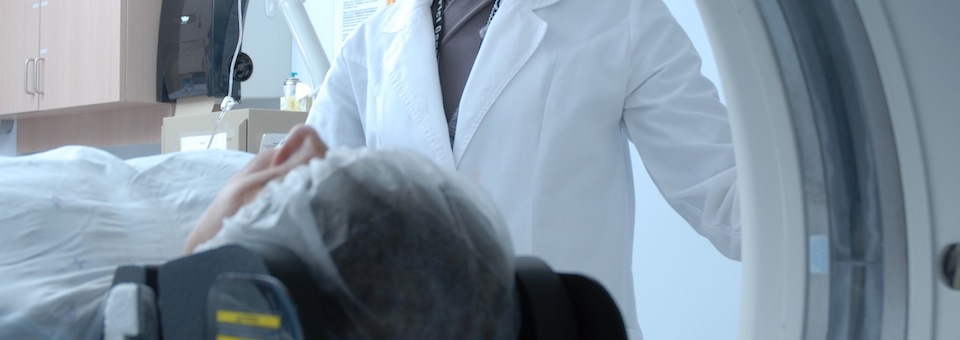July 2020 – New! – MRI exams are now available at Hawkesbury and District General Hospital
Magnetic Resonance Imaging (MRI) is a painless medical imaging test that uses strong magnetic fields, radiofrequency waves and a computer to make detailed three-dimensional pictures of the organs, bones and tissues inside the body.
Who do we serve?
- Patients aged 16 and over
You might not be able to have an MRI if you have the following:
- A cochlear (ear) implant
- Aneurysm clips
- Coils placed in blood vessels
- A defibrillator or pacemaker
MRI can be performed if you have:
- Joint replacements, metal pins, screws and plates
- Artificial heart valves
- Coronary stents
- Tooth fillings
Are there any risks or side effects?
- MRI does not use ionizing radiation and there are no known harmful effects. However, if you are pregnant, a radiologist will be required to approve the examination.
- Sometimes an injection of contrast (gadolinium) is required to enhance the images. Risk of serious reaction or side effects from the contrast is extremely low.
- A very small amount of contrast can be present in breast milk and absorbed by the infant. It is recommended that breastfeeding patients pump and discard breast milk for a period of 24 to 48 hours after the exam.
Safety precautions
- You must not bring metal objects within a designated area that begins close to the examination room. The very strong magnetic field of the machine can attract loose objects and cause them to move, turning them into dangerous projectiles.
- Patients with objects implanted in their body may not be safe in the MRI environment.
- It is very important to inform the MRI team if you have any metal in your body.
- You will undergo safety screening prior to booking and on the day of the examination to ensure that you are safe to enter the MRI environment and the strong magnetic field.
The MRI is a test provided by the Medical Imaging Department.
How to Access Our Services?
- You must have a referral from your doctor or another healthcare professional to get an appointment for this test.
